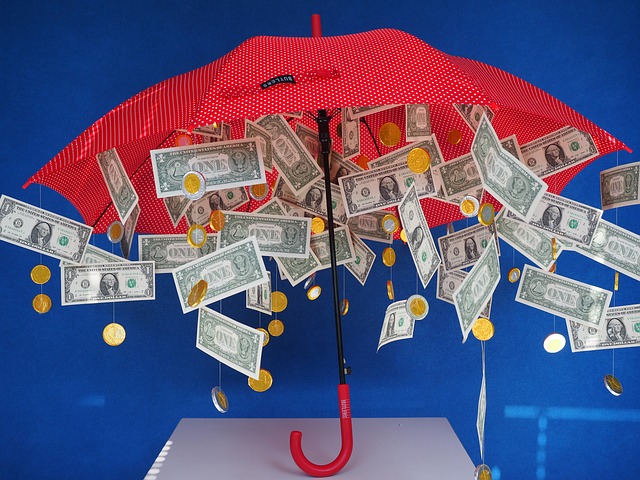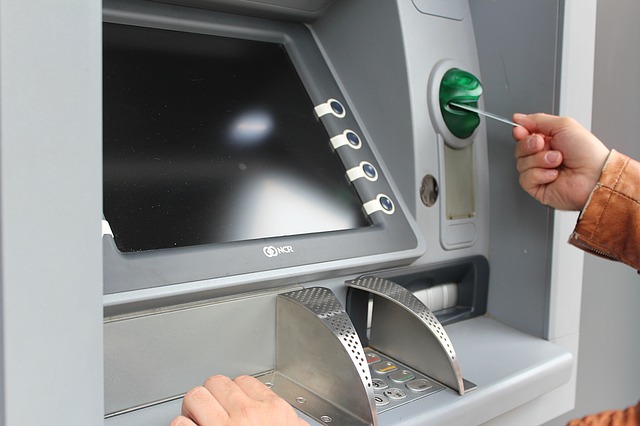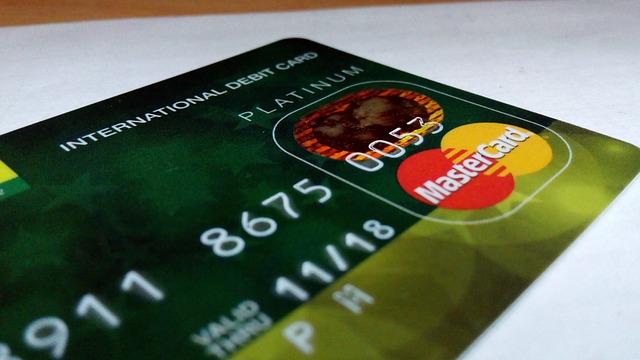What is a Student Loan? A student loan is exactly what it sounds like – a loan given to students to finance their studies. This is most common for college or university students, but also works for trade schools and other vocational studies. Most of the time when a person takes out a loan, they Read More…
Property rights is the foundation of all free-enterprise economic systems. It is what allows people to profit from capital and ideas, without fear of seizure by the government or theft. Definition “Property Rights” usually refers to a set of fundamental rights giving citizens control over their own land, capital, and ideas. Land Property Rights The Read More…
There are hundreds of small tips and rules you will hear about managing your personal finances, but putting everything together into one coherent plan can be a daunting task. You have probably already heard about budgeting, spending plans, savings strategies, credit cards, and all points in between – now we will put everything together to Read More…
Your home will probably be the biggest purchase you make in your lifetime. Buying a home not only saves money on rent, but is a serious asset that can appreciate over time. Since homes are so expensive, (almost) no-one buys them in cash. Instead, homes are typically purchased with a special type of loan, called Read More…
Buying a car is usually the first big purchase a person will make. There is also no shortage of horror stories of people immediately regretting the decision, either by buying a new car and later struggling to meet payments, or a used car with hidden mechanical problems demanding costly repairs. When you need to buy Read More…
“Spending Shocks” are large, irregular expenses. According to CBS, more than 60% of Americans cannot absorb a $500 spending shock: spending shocks are the #1 reasons why budgets end up abandoned, and being prepared for large spending shocks is the best thing you can do to keep your personal finances healthy. Types of Spending Shocks Read More…
Everyone needs to start from somewhere. While you build your personal finances from the ground up, you may already have faced times when you had low (or no) income, trying to get any advantage to pull yourself up. There are several public programs specifically designed to help people get out of these situations. In the Read More…
Building a budget or spending plan is tough. Sticking to the plan is even tougher. Thankfully, there are a few ways you can game the system to make sure you stay under budget, and your savings continues to grow. Budgeting Strategies A “Budgeting Strategy” means different ways to approach your budgeting to build something that Read More…
If you are severely behind on your bills and all other debt management plans have failed, the last option available is declaring Bankruptcy. What is Bankruptcy? Bankruptcy is a type of forced debt settlement, and is a legal procedure. When you declare bankruptcy, the courts will gather all your unsecured creditors together, and hear the Read More…
If you find yourself over your head in debt, there is always a light at the end of the tunnel. Credit counseling agencies, both for-profit and non-profit, exist in every state to help people build a clear, workable path back to healthy personal finances. If you do need the help of a credit councilor, this Read More…
If you start falling seriously behind on your bills with simple prioritization and negotiation not enough to catch up, you still have some options available to keep your finances under control. One of the most straight-forward options is Debt Consolidation. When to Consider Debt Consolidation Most adults have at least half a dozen creditors, such Read More…
Everyone has had financial emergencies, when a huge spending shock breaks your budget or spending plan into pieces. If you have more than one emergency in a short time, such as if you lost your job, your outstanding debt balances might start to spiral out of control. Even in extreme circumstances, it is still possible Read More…
It happens to everyone: a monetary emergency happens, such as a car breakdown, draining your bank account. Bills are still coming in, and you already know that you will not even be close to paying off everything this month. One of the goals of strong personal finance is trying to avoid these scenarios by having Read More…
Every person makes hundreds of purchases every week. Think about how many individual items you have when buying groceries, how often you eat out or use a vending machine, or how often you buy new clothes. Each purchase has a reason, but each purchase costs money. One of the cornerstones of strong personal finances is Read More…
Every high school student makes a choice when they are about to graduate – enter the job market right away, enter a trade school, or enroll in a university? Everyone will make the same kind of choice many times throughout their lives. If you first choose to work, the option is usually still available later Read More…
When you are evaluating how to spend your money, most people make a fairly simple comparison – if the benefit you think you will get from the purchase is bigger than the cost, then most people go ahead with the purchase. When you are working to master your personal finances, you might notice a problem. Read More…
Homeowner’s Insurance is a broad type of insurance coverage designed to cover a home and the property it sits on. This insurance is very broad, wrapping many different types of coverage into one package. If you want to take out a mortgage on a home, the institution you borrow from will probably require you to Read More…
“Rental Insurance” is taken out on property you rent to insure against damage. Rental insurance works like a lighter version of Homeowner’s Insurance. Why Would I Need Rental Insurance? As a renter, this insurance does not do you much good. For example, if there is a fire at your apartment caused by one of your Read More…
If you drive a car, you need to be covered by some sort of car insurance. You have probably seen dozens of advertisements from insurance companies claiming to help lower your rates, improve your coverage, or just help you compare, but before you buy your first insurance (or change providers), the first step is knowing Read More…
Once you file your income taxes, the IRS will review all the forms you submit, and either issue your return or refund, usually with very little turnaround time. However, occasionally the IRS will ask you to provide some supporting documentation before your return is accepted. The Basics of an Audit An “Audit” is what happens Read More…
Everyone loves getting tax breaks, but what can really ruin your finances in the long-run is forgetting about tax additions – extra taxes and fees that you need to add on to your tax bill. Missing these extra taxes will hurt – taxpayers are currently charged 6% APR on all outstanding tax balances. This means Read More…
What Is Sales Tax? “Sales Tax” is a tax that is charged on goods sold to end customers. The Sales Tax is a set percentage of the price of the goods sold. In the United States, all states except Alaska, Delaware, Montana, New Hampshire, and Oregon charge a sales tax, but the sales tax will Read More…
Short Term Financing “Short Term” financing means taking out a loan to make a purchase, usually with the loan term at less than a year. There are many different types of short-term financing, the most common of which are “Buy Now, Pay Later”, “Unsecured Personal Loans”, and “Payday Loans”. Short Term Financing VS Credit Cards Read More…
What are Credit Cards? Credit cards is a form of unsecured credit (meaning a loan without collateral) that you can use to make everyday purchases. All credit card purchases are made using a loan – you borrow money from your credit card issuer, and later pay it back with interest. Credit Cards Vs Debit Cards Read More…
Before Debit Cards Before the 21st century, if you wanted to buy groceries or visit the mall, you had 4 options that you could use to pay, all of which had their own drawbacks: Cash, checks, credit cards, and short-term financing. Cash is always reliable to make a purchase, but is prone to being lost Read More…
Beginners trying to tackle their personal finances for the first time see debt as sort of a “boogeyman”, a specter that looms overhead, trying to trap people into inescapable cycles of minimum payments and late fees. Or at the very least, something to be avoided whenever possible. Deep down, we all know this is not Read More…
Automatic Payments – Blessing Or Curse? That title may be a bit hyperbolic – Automatic Bill Payments can be a huge time saver, and do help make sure your bills get paid on time (avoiding late fees and general headaches). This does come at a price, though – when your bills are automatically paid, you Read More…
When learning about managing your finances, many experts will recommend you begin with a budget. A budget is a tool that tracks income and expenses, and it allow you to set goals and make plans for the future. Developing a budget for a specific project, for a special event, or to help you with your Read More…
Your parents probably have experience reconciling their checkbook by comparing your own written records with their bank statements. In today’s world, reconciling your checkbook isn’t a common activity for two reasons: Paper checks probably only account for a small amount of your total expenses per month You probably have an automatic record with your bank’s Read More…
When you are getting your financial records organized, it is important to keep track of your spending, and with your spending comes receipts. If you think about a typical shopping trip, it is easy to accumulate several receipts quickly as you shop at different stores, stop for a bite to eat, and fill up your Read More…
To be “In Debt” means to owe money to someone else, usually making fixed payments to pay back the amount over time, plus interest. Debt means different things to different people – having some debt is perfectly healthy for your personal finances, but too much can leave you buried. There is also a major difference Read More…
An “Investing Strategy” is a plan for how to save money to help it grow. Sometimes an “investing strategy” can just mean “plan for trading stocks”, but it really means a lot more. Liquidity, Risk, and Potential Returns All investments balance liquidity (how easily it can be converted into cash for other use), risk (the Read More…
What Is Credit? “Credit” is when you have the ability to use borrowed money. This can come in many different forms, from credit cards to mortgages. There is a wide range of ways to use credit, which means that it is often a challenge for beginners to learn all the different ins and outs of Read More…
When should someone start planning for retirement? Fidelity Investments recommends most young people try to save up 2x their annual salary by the time they turn 35, which is a pretty good benchmark to shoot for. Unfortunately, retirement is so far off the mind of most young people that they find their retirement account is Read More…
Definition A “Contract” is a legally binding agreement between two parties (people, companies, or both). Having a contract means that if one party does not keep their word, the other can sue them in court to either force them to fulfill their side of the agreement, or pay back compensation. What Makes A Contract Binding? Read More…
When talking about Banking, people generally group Banks, Credit Unions, and Savings & Loan companies all in one group. They do provide similar services, but they each have specific differences that might make them a better or worse fit for your financial needs. What They Have In Common All three of these institutions can do Read More…
Definition of Spending Plan A “Spending Plan” is exactly as it says – a plan of what you will be spending each month. There are usually two parts – your “fixed” spending and your “variable” spending. The fixed part is usually the same every month, with things like rent/mortgage payments, grocery bills, insurance, and car Read More…
Definition When we think of money, stored value means anything that isn’t cash, but you can still use to transfer value – checks, debit cards, gift cards, and forms like that. These are used to transport some dollar amount which we can later exchange for goods and services. Each of these forms of stored value have their Read More…
Definition of Wealth “Wealth” means having an abundance of something desirable. This can be tangible, like money and property, or intangible, like good health or freedom. Intangible Wealth Just because something does not have a monetary value does not mean it is worthless. Having strong connections with friends and family is often considered a major Read More…
As you begin working with financial institutions to secure your money and process your financial transactions, it is important that you learn to keep good financial records. These records, both on paper and electronic, will allow you to know where your money and assets are and exactly how much you have at a given time. Read More…
Insurance is protection from losing or damaging something. It is defined as the transfer of loss risk in exchange for payment. Basically, if we damage or lose something that was insured, the insurance will cover the cost of having it fixed or replaced.
We will teach you how to save money so that you can afford your future now. There are two main questions you need to ask yourself to effective save money: A.“How much will I need?”, and B.“What can I afford?”
A good way to evaluate a manager is to ask many relevant questions pertaining to your own personal financial situation and your financial goals. Examples of questions to ask are:



































